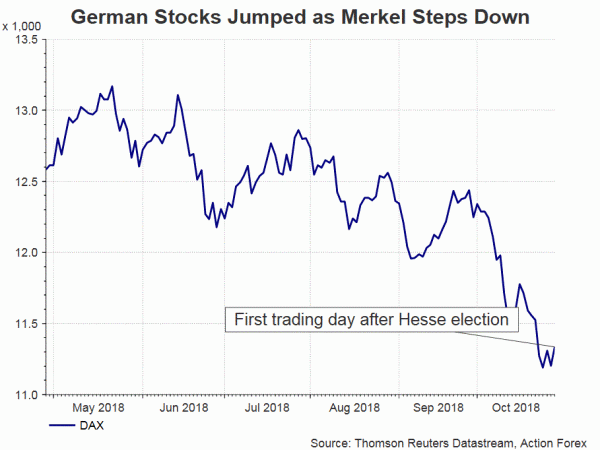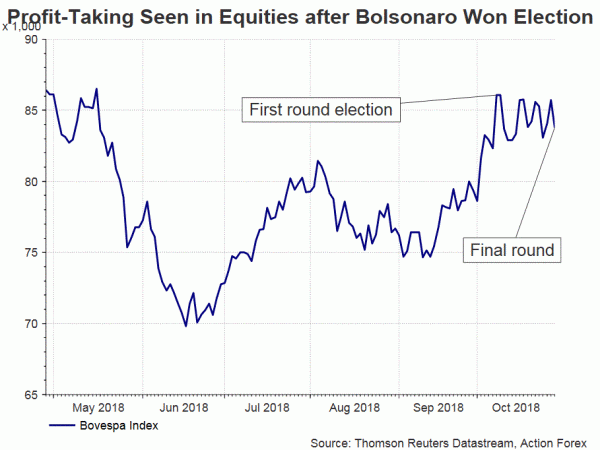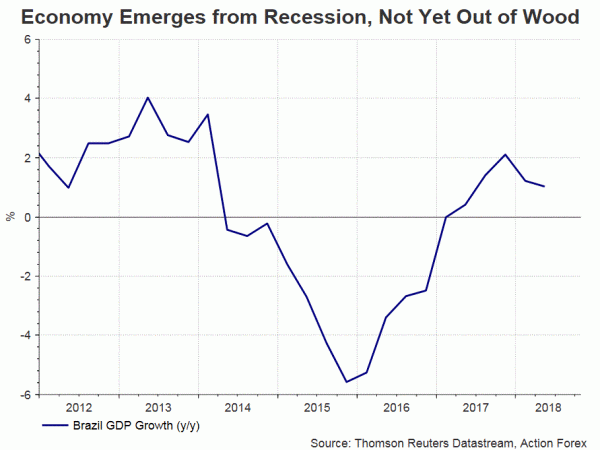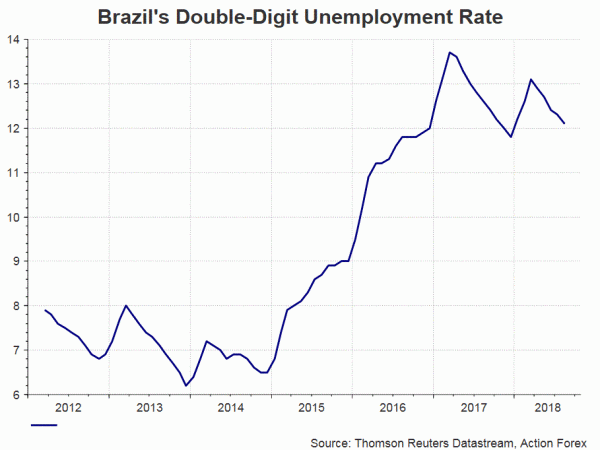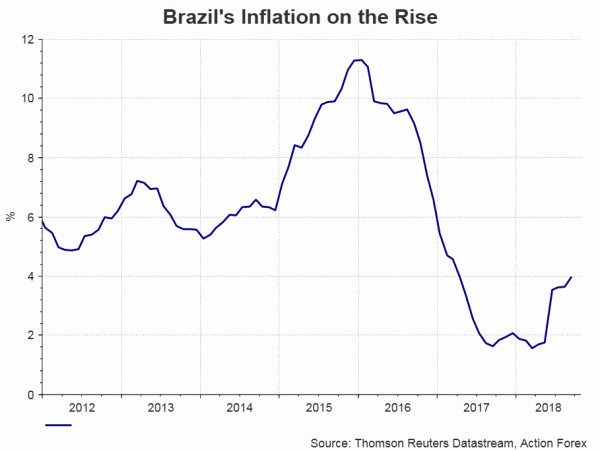The Brazilian presidential and German state elections over the weekend have sent a common message – the desire for change. The election results reveal that the anti-establishment and populist sentiment continues to ferment. Both elections have led to severe loss of the establishment and upsurge in the right-wing, populist parties. These signal voters’ dissatisfaction of the current economic and political environment and desire for change.
The financial markets reacted positively to both elections. For Brazil, stock market rallied after the exit polls showing Jair Bolsonaro’s victory. Markets participants bet that the new president’s market-friendly policy would attract investment and stimulate the country’s economy. German and European stock markets gained as Angela Merkel announced to step down. Some market players criticized the coalition government led by Merkel as anti-growth. There are hopes that her departure would bring a new beginning to the country.
Brazil’s Presidential Election
Far-right populist Jair Bolsonaro (Social Liberal Party) declared victory of presidency with over 55.1% of votes, compared with left-wing Fernando Haddad’s (Workers’ Party) 44.9% votes. A confluence of factors can explain the decisive victory and the market reaction: intolerance of years of corruption of the ruling party (Workers’ Party), whose poor governance has led to spiraling debt, sluggish growth and elevated unemployment; desire for a way out from economic crisis, hopes to restore law and order. In short, the country is at crisis both economically and politically. A survey conducted last year revealed that over 80% of Brazilians said that the country’s economy is bad while 90% said that corruption is a major problem. Brazilians are hungry for change.
The business community appears hopeful that Bolsonaro’s economy policy would be liberal and market-friendly. Bolsonaro and his team propose mass privatizations, public pension reform, and tax cut for individuals and corporations. Bolsonaro’s economic advisor, Paulo Guedes, advocates privatizing one-third of Brazil’s state-controlled companies. They also favor downsizing the government and promise control of public finances.
Note, however, that Bolsonaro’s commitment to all these reforms is untested. The key is on execution. Workers’ Party, running the country for 14 years, was once appealing to its voters. Its rotten governance not only has cost its failure, but also the ill-being of the country’s economy and its people.
German State Elections
Support for the country’s ruling coalition parties (CDU/CSU/SPD) hit all time low. Sunday’s Hesse state election shows that Merkel’s centre-right CDU got 27% of votes, down significantly from 38% in the 2103 election. Meanwhile, centre-left Social Democratic Party (PSD) got less than 20% of votes, compared with about 31% previously. Two weeks’ ago, CDU’s sister party (CSU) suffered huge losses in Bavaria’s state election. The center-right party got just over 37%, down 10% from the previous election in 2013. SPD’s support dived to just 9.7% in the Bavarian election. Leftist Green Party and right-wing populist AfD party got a surge in both elections.
Admitting CDU’s failure, Angela Merkel announced that she would step down as party chair at the December convention of the CDU, after serving the capacity since 2000. She would also not run for re-election when her term as German Chancellor ends in 2021. It is not of great surprise although it is the first time that Merkel has explicitly ruled out the chance of running for a fifth term. The successor is the key. Three CDU members, party secretary-general Annegret Kramp-Karrenbauer, Health minister Jens Spahn and Former parliamentary leader when Merkel started as party chair, Friedrich Merz, have so far indicated their ambitions to run for party chair, and probably the chancellor at the upcoming election. It is critical to see the successor’s political stance. Whether they would move further to right side of the political spectrum or continue the Merkel’s centrist approach would certainty affect bigger issues of EU reforms and Brexit negotiations – future trade relations between UK and the Eurozone.
The downfall of SPD has increased the risk of a resumption of German political turmoil. Many have attributed SDP’s failure in the 2017 federal election to its collaboration with CDU/CSU – forming coalition government with CDU/CSU. While pledging to be the biggest opposition in the parliament shortly after the last year’s election, SPD eventually formed a coalition government with CDU/CSU again. Persistent loss of popularity should lead some SPD members to rigorously propose leaving the government as soon as next year.

